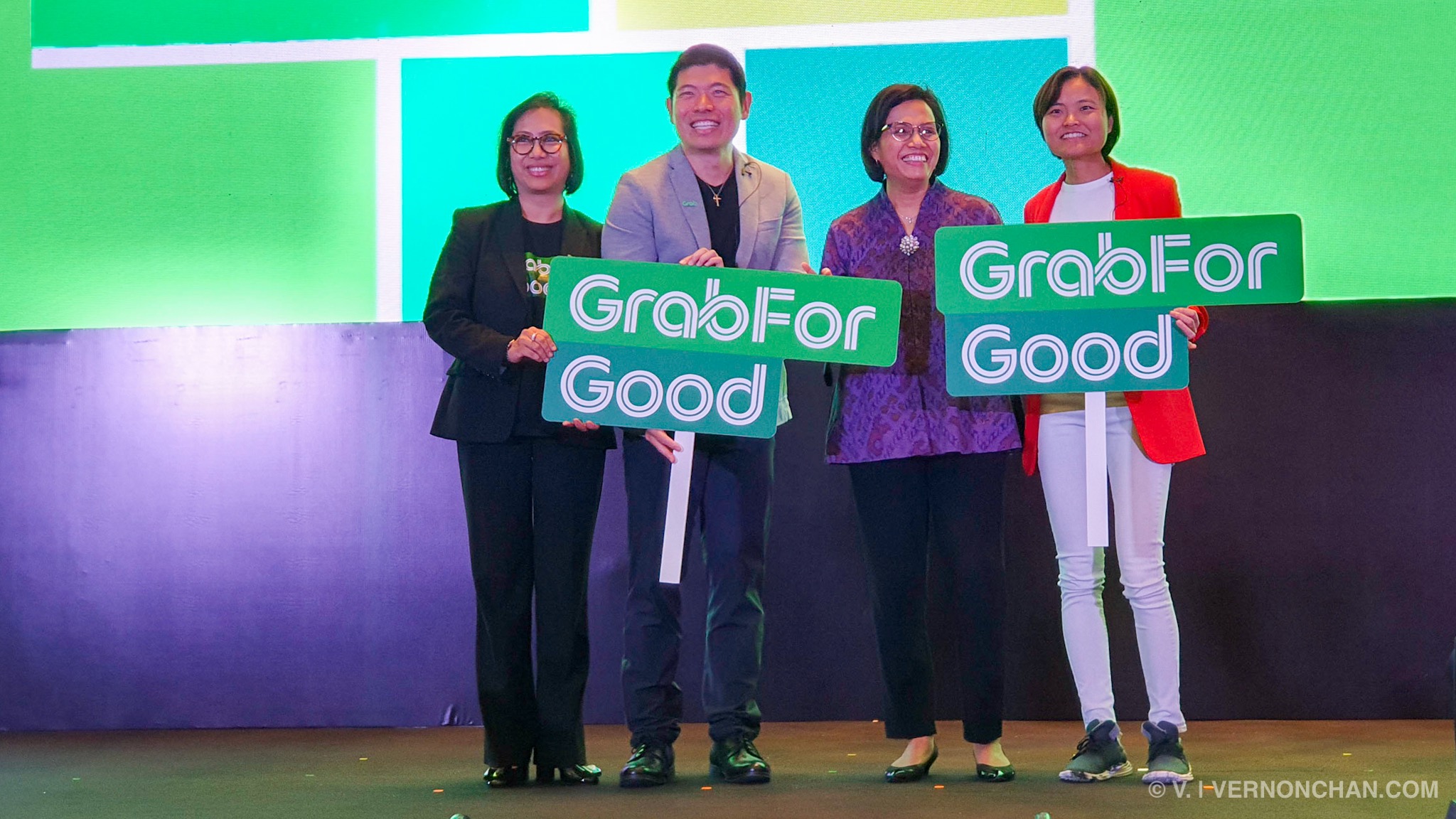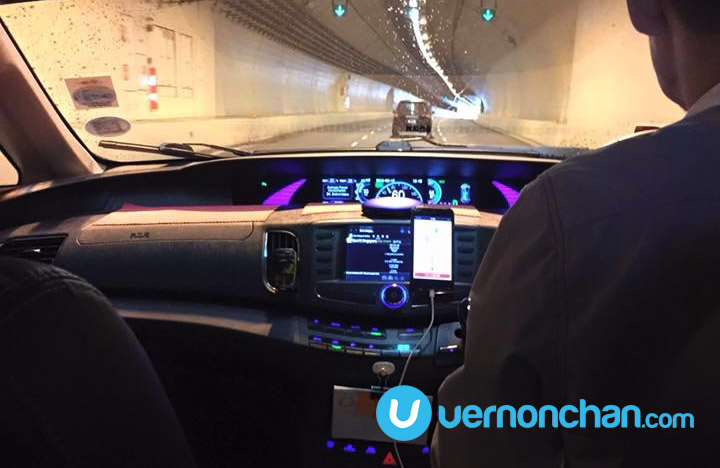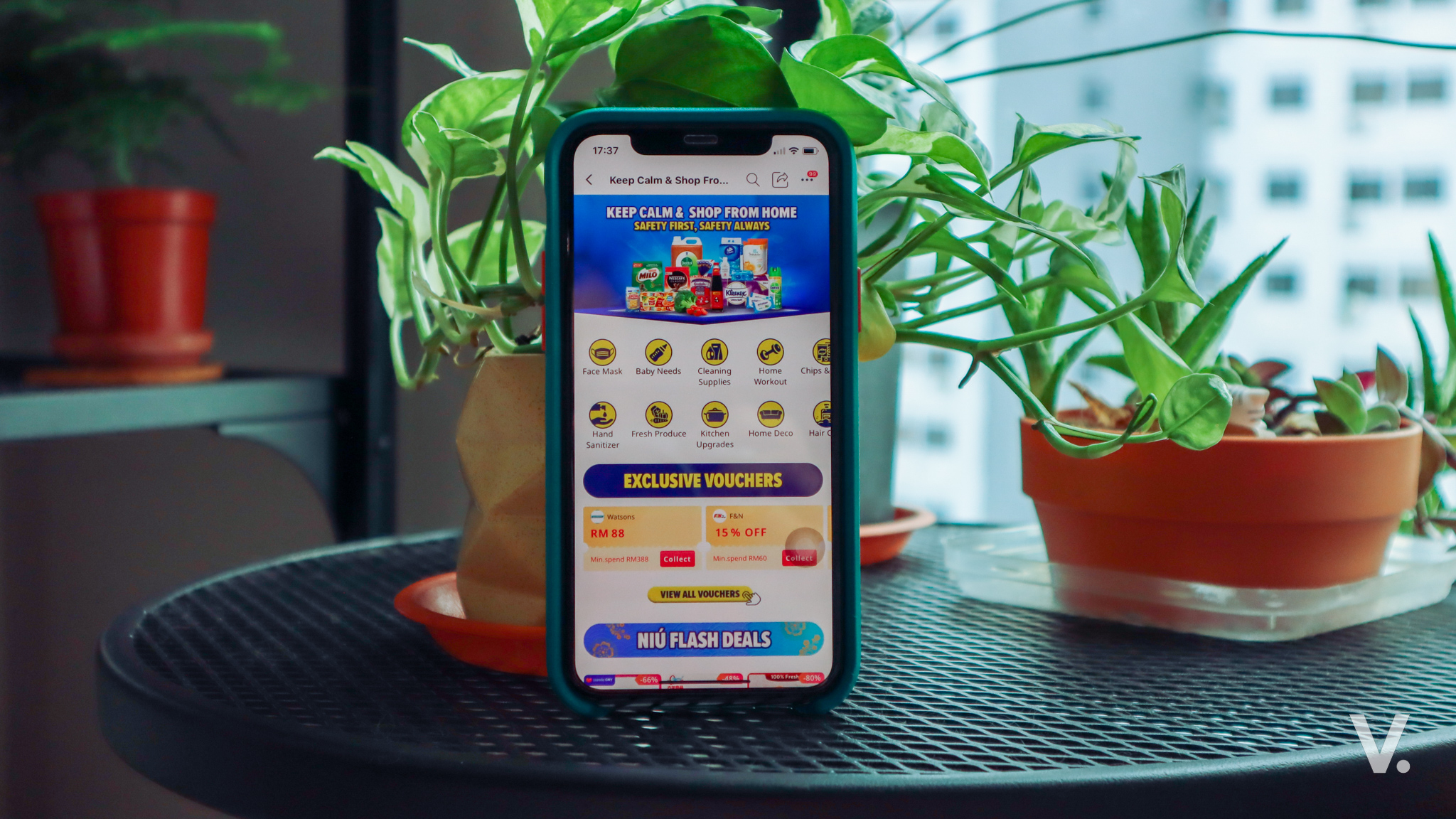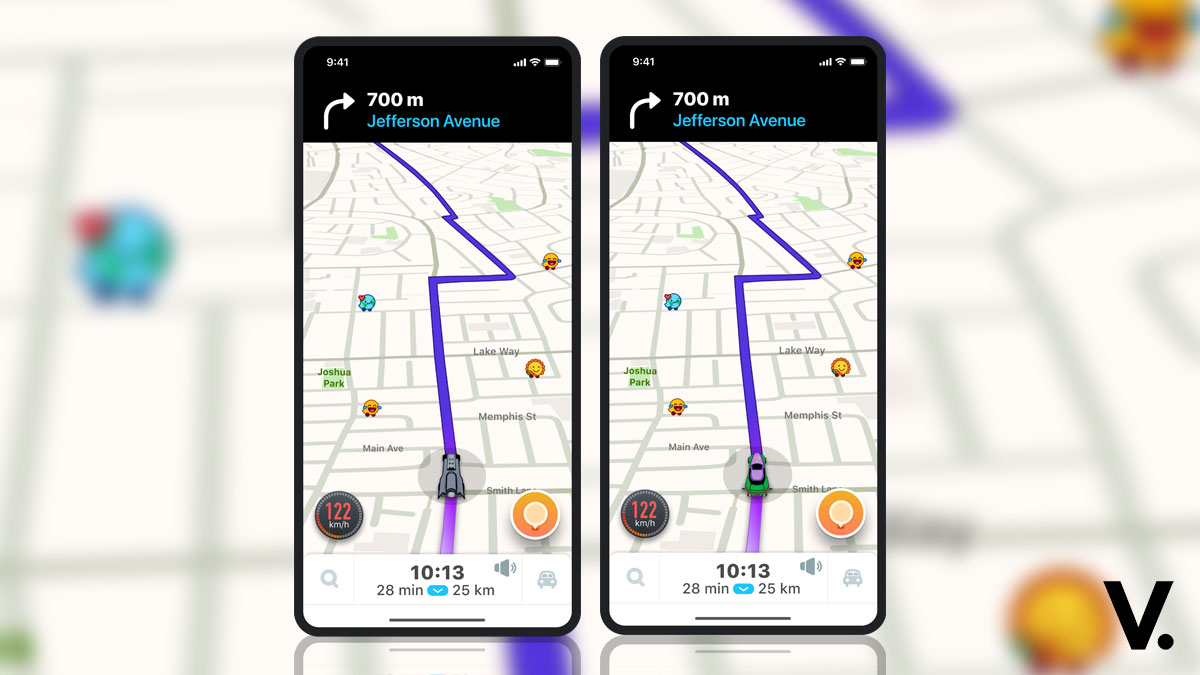Grab in Jakarta, Indonesia today, announced its “Grab For Good” social impact programme that aims to empower people in Southeast Asia to be part of the fast-growing digital economy through digital literacy and greater digital inclusion. Two flagship initiatives under the programme includes “Tech for Good,” a skills training and digital literacy partnership with Microsoft; and regional “Break the Silence” initiative that enables the deaf and hearing-impaired to better participation in the Grab ecosystem.
“Leave no man behind,” said Anthony Tan, Group CEO and Co-founder of Grab in his opening keynote, referring to Grab’s goal of creating equal access for all, specifically in Southeast Asia.
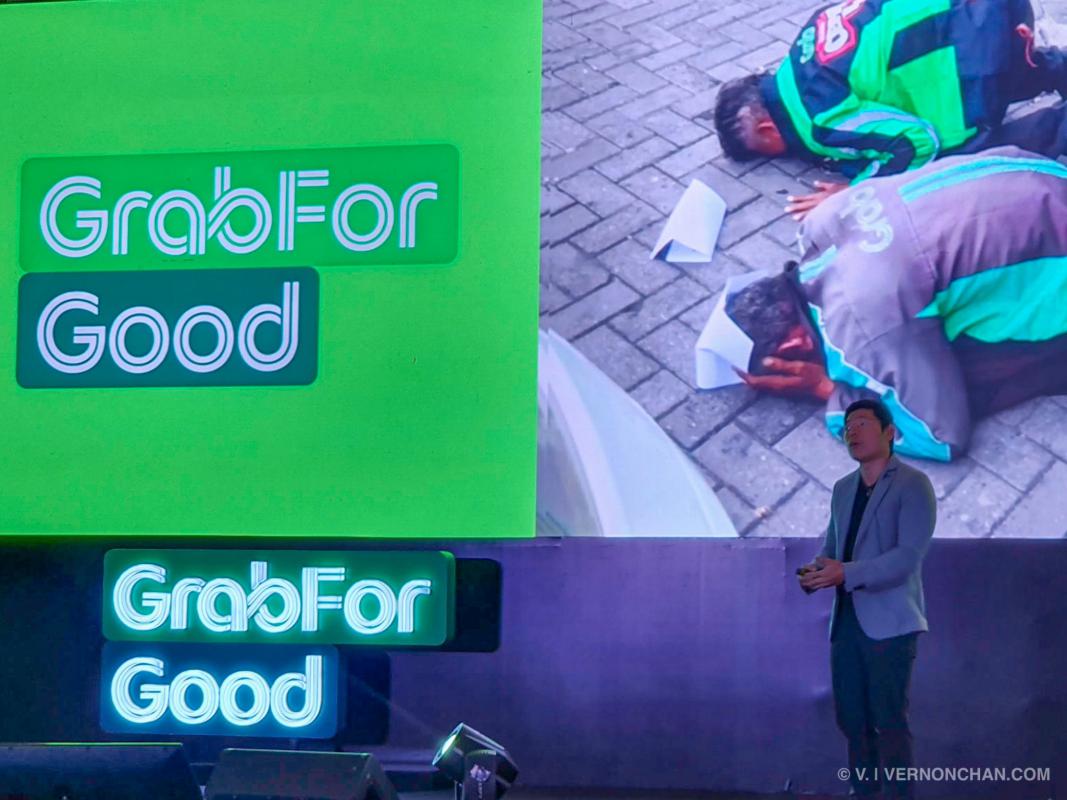
From its humble beginnings as a small startup in Malaysia with a singular mission to solve the long-standing taxi problem, Grab has grown into a reckoning force operating in eight countries and 339 cities, offering a plethora of services within its ecosystem.
Its impact on the socio-economy of Southeast Asia cannot be disputed. It is estimated that the company contributed USD5.8 billion to the Southeast Asian economy in the 12 months ending March 2019.
The numbers speak for themselves. Grab empowers over 9 million micro-entrepreneurs and small businesses across the region. Over 20 percent of Grab driver-partners did not work prior to joining Grab; over 30 percent of agents in Indonesia had no income prior to joining the Kudo network.
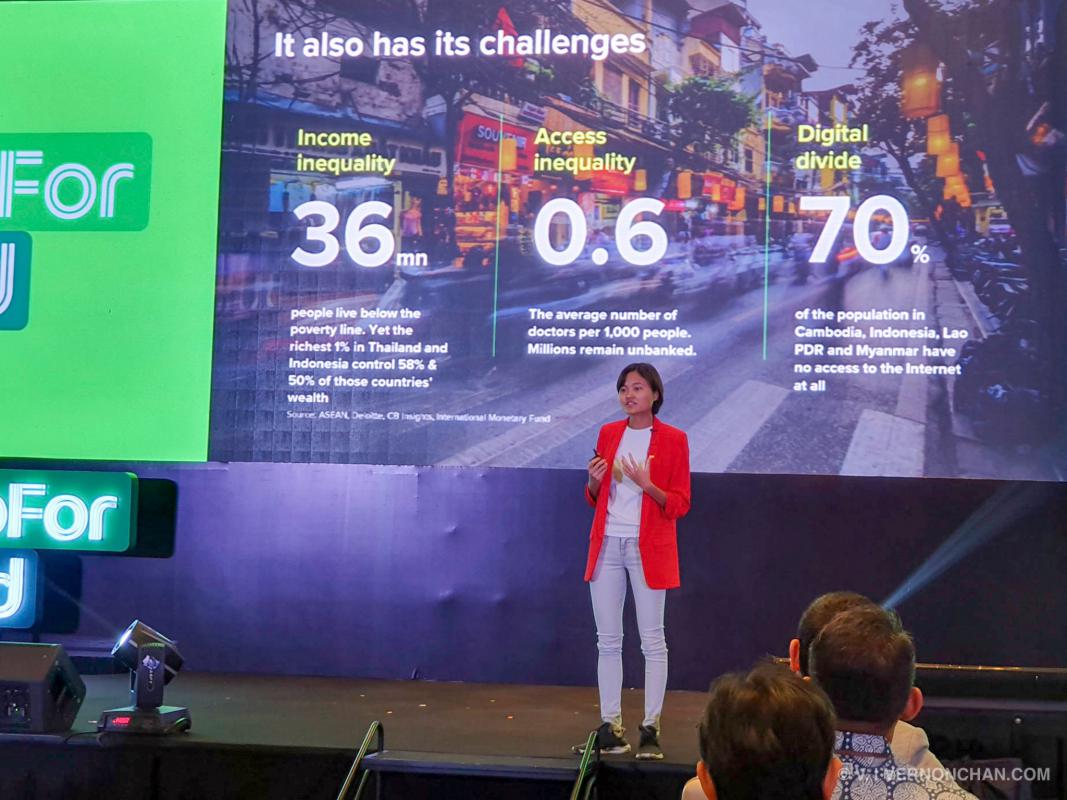
Beyond creating economic opportunities, Grab has also helped improved access to financial services and digital payments. Since its inception in 2012, Grab has helped over 1.7 million micro-entrepreneurs open their first bank accounts. The company is also helping to move the region into a cashless future; cashless usage is up to 9x higher on Grab, compared to overall country cashless usage. Malaysia, currently lags at 5 percent against its Southeast Asian neighbours.
The social impact was encapsulated in Grab’s first ever Social Impact Report, released today.
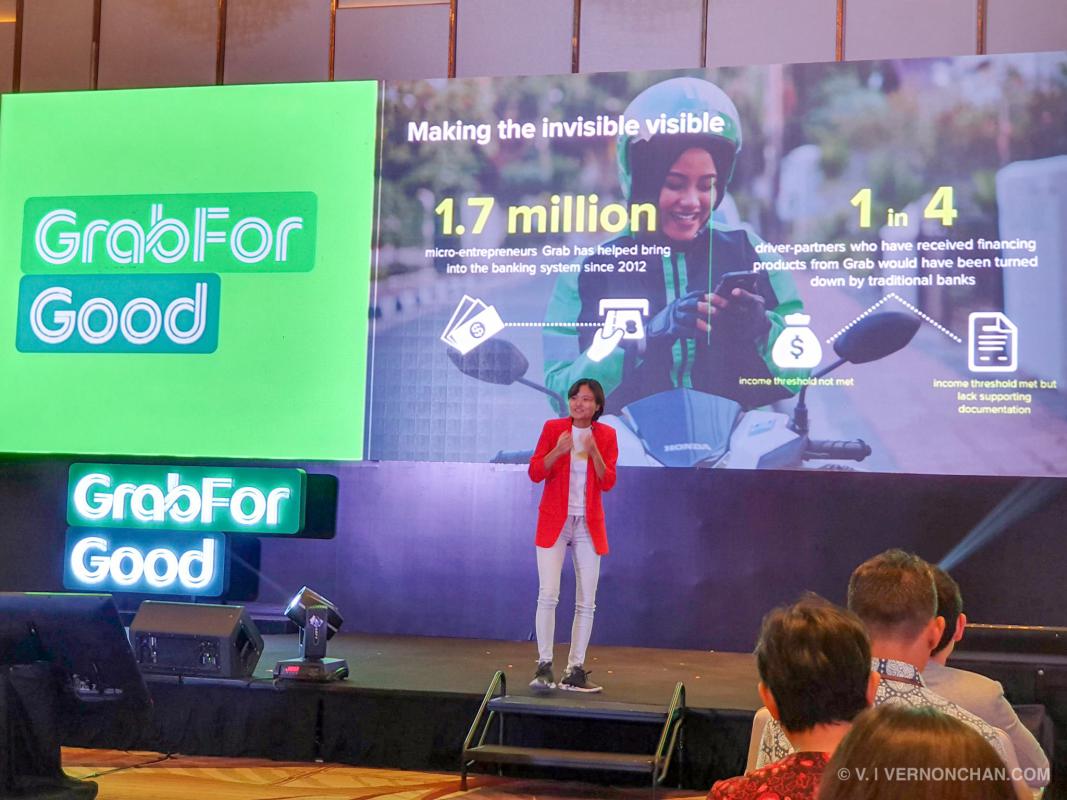
And yet, this is not enough, stressed Anthony. As Southeast Asia continues to grow into a global economic powerhouse, he says Grab has the responsibility to serve the communities that drive its business—the micro-entrepreneurs and businesses—to create sustainable livelihoods for themselves. This is especially crucial seeing that SMEs contribute almost half of the region’s gross domestic product (GDP).
It is only in the company’s interest that its millions of partners do well economically.
“Technology, despite its deficiencies, can be an abiding force for good,” said Anthony.
Grab for Good goals
By leveraging on its technology, platform, and partnerships, Grab has set lofty goals for its “Grab for Good’ programme to be achieved by 2025:
- Improve digital inclusion and digital literacy in Southeast Asia: Grab aims to bring digital literacy and greater inclusion to 3 million Southeast Asians by 2025 through partnerships with governments, private companies and non-profit organisations.
- Empower micro-entrepreneurs and small business: Grab aims to help over 5 million more traditional businesses, and small merchants digitise their workflows and processes.
- Building future-ready workforces: Grab aims to train 20,000 students through its tech talent initiatives in partnership with educational institutions, non-profits and leading technology companies like Microsoft. According to a report by the World Economic Forum (Aug 2019), 16 percent of ASEAN youth want to work in the technology sector in the future.
Tech for Good
As part of Grab for Good, Grab announced a regional partnership with Microsoft that aims to empower workers with the necessary technology skills for them to thrive in the new digital economy.
As many as 6.6 million workers across the six major ASEAN economies will require refs killing by 2028. According to Grab, about 41 percent lack the relevant IT skills that new jobs will demand.
The collaboration will see Grab and Microsoft collaborate in three ways:
- Building technical talent among young people in universities across Southeast Asia
- Empowering driver partners and their families through the development of digital skills
- Creating a pathway for driver partners to pursue tech-enabled careers, with support from global non-profit GenerationL: You Employed

Break the Silence
Starting today, Grab will expand its “Break the Silence” initiative to Indonesia and Singapore, after pioneering it in Malaysia and now also running in Thailand. Currently, there are over 500 deaf and hearing-impaired driver-partners on the platform. Grab plans to double this number over the course of the coming year.
During this year’s International Week of the Deaf (23-30 September), Grab will announce partnerships with Gerkatin in Indonesia, Malaysia Federation of the Deaf, Singspore Association of the Deaf, and National Association of the Deaf Thailand.
Aside from opening more opportunities for the specially-abled, Grab is also implementing process improvements and new features into its Grab passenger and driver apps to facilitate better communication. It will also be easier to access customer support via a dedicated live chat feature.
In Malaysia, Grab will also be creating The Sign Dictionary to teach people how to communicate with the deaf community through a Grab app widget. Internally, the company conducts monthly trainings to equip driver-partners to better assist passengers with disabilities.


